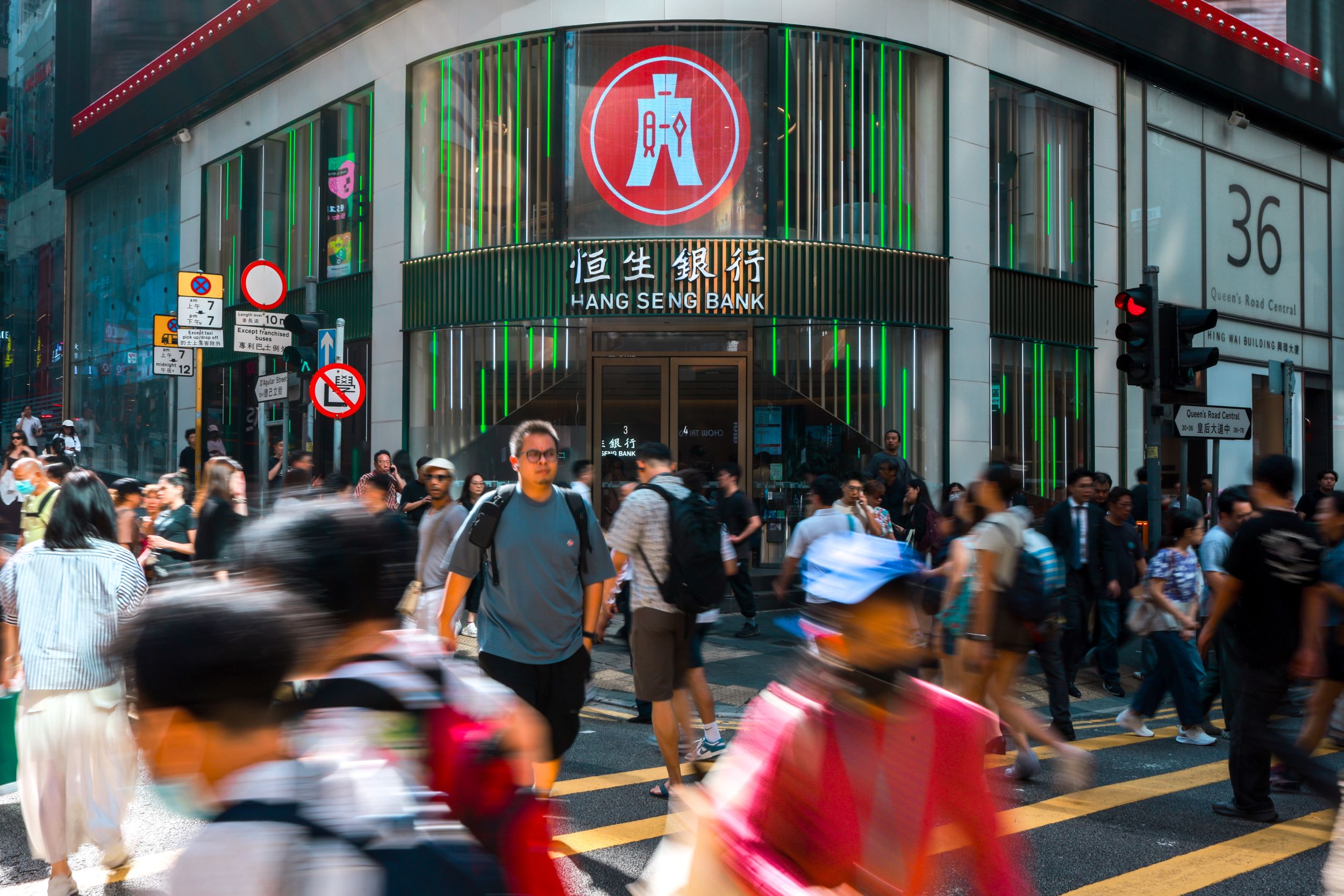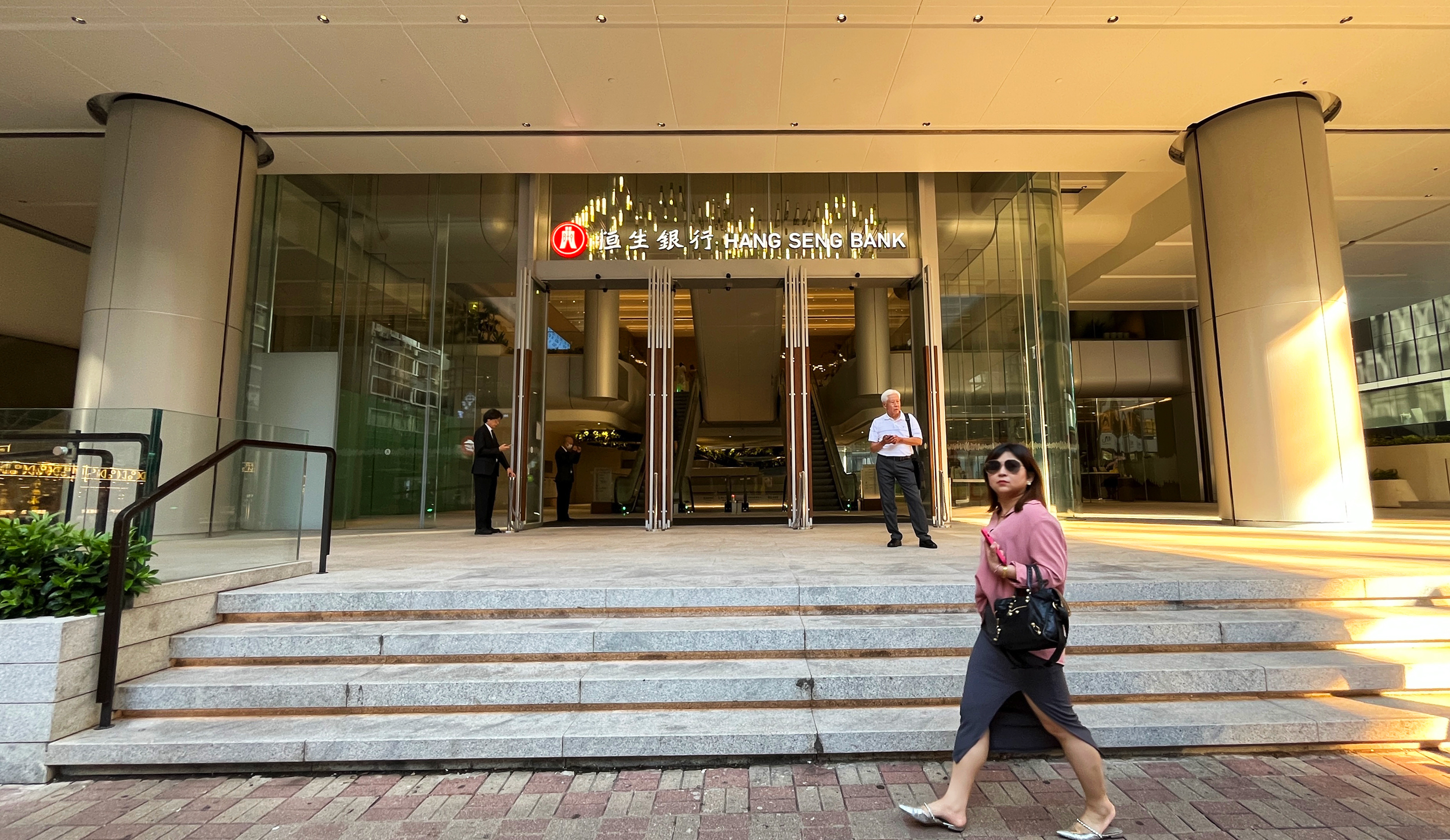
HSBC Holdings Plc is planning to privatize its Hong Kong subsidiary, Hang Seng Bank Ltd, in a bid to increase its investment in Hong Kong and better capitalize on the city’s position as a leading global financial hub.
Shares in Hang Seng Bank soared by over 25 percent following the announcement on Thursday.
HSBC proposed offering HK$155 ($19.9) per share, valuing the deal at around HK$106.1 billion. This offer seeks to purchase the 36.5 percent stake in Hang Seng Bank that HSBC does not already own.
The proposed price represents a 30.3 percent premium over Hang Seng Bank’s closing price of HK$119 on Wednesday and exceeds the stock’s highest price in three years and six months, according to HSBC.
If the privatization is approved, Hang Seng Bank will become a wholly owned subsidiary of HSBC Asia-Pacific, and its more than 50-year listing on the Hong Kong Stock Exchange will be terminated.
“Our offer represents a significant investment into Hong Kong’s economy,” said Georges Elhedery, group CEO of HSBC.
READ MORE: HSBC asks Hang Seng Bank to clean up bad Hong Kong property debt
“(This) underscores our confidence in this market and commitment to its future as a leading global financial center, and as a superconnector between international markets and the Chinese mainland,” he added.
The London-based lender denied reports that the privatization aims to address Hang Seng Bank’s non-performing loan issues. That is “absolutely not the case”, said Elhedery. He noted that the two banks had talked about Hang Seng Bank’s commercial real estate exposure, and remain optimistic about the property sector’s medium- to long-term prospects.
David Liao, co-chief executive of HSBC Asia and Middle East, said the privatization would allow HSBC to expand its Hong Kong business, streamline operations, and increase investment flexibility. He emphasized that Hang Seng’s non-performing loans were not a factor in the strategic decision.
The move will allow HSBC to better allocate capital and unlock Hang Seng Bank’s earning potential. Hang Seng, in turn, is expected to benefit from HSBC’s global resources and expertise, said Liao. He reaffirmed that the group would continue its investment in talent and technology in Hong Kong.

The Hong Kong Monetary Authority stated that it is aware of the privatization plans and has been communicating with the banks involved. HSBC and Hang Seng Bank will continue to operate as two separate “authorized institutions” after the privatization is completed, the HKMA said.
HSBC had also assured the special administrative region government that it would maintain and increase its investments in the city, said Hong Kong Financial Secretary Paul Chan Mo-po. He added that the British lender described the move as part of its efforts to integrate its structure and resources to enhance operational efficiency and performance.
ALSO READ: HSBC 'disbands team focused on managing geopolitical risks'
Michael Makdad, a senior equity analyst at financial services firm Morningstar, said this is a “positive and long-overdue” move, as he believes that parent-subsidiary double listings are “inherently problematic” in terms of governance.
Jason Chan, a senior investment strategist at Bank of East Asia, said he believes the proposal has a strong chance of getting the green light. He explained that the HK$155 offer is attractive, especially given the challenges the banking sector has faced in recent years and Hang Seng Bank’s lackluster stock performance.
While most Hong Kong-listed banks saw gains on Thursday, HSBC Holdings’ share price fell around 6 percent.
Contact the writer at irisli@chinadailyhk.com


